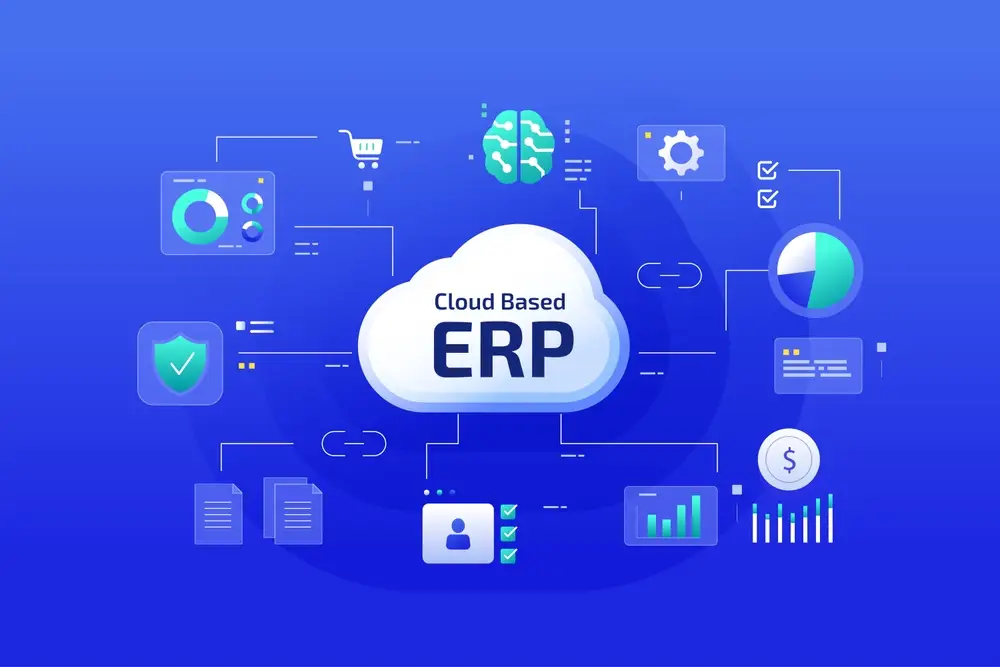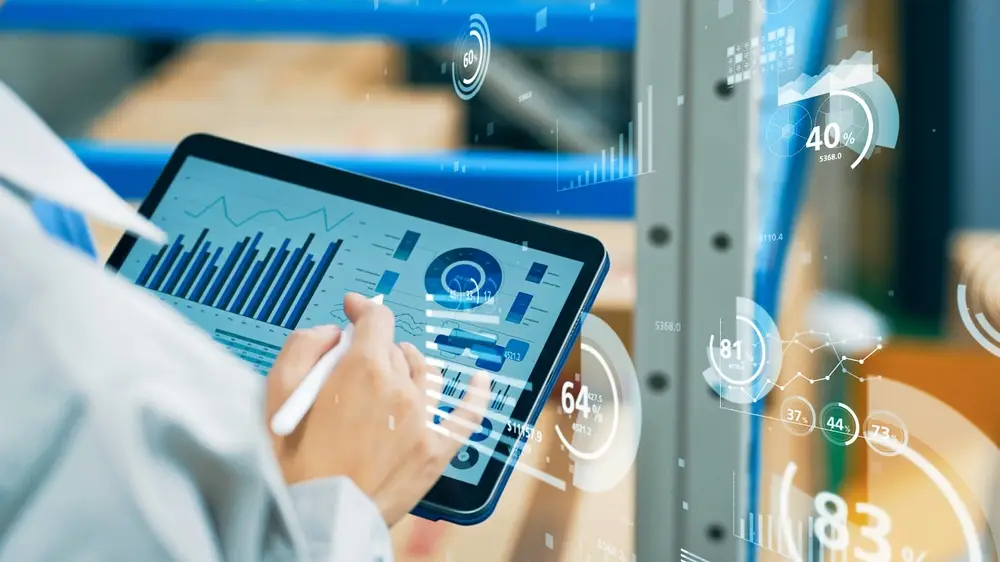Curious about where ERP technology is headed? Discover the key trends that will shape the future of ERP systems and transform convenience distribution.
In the fast-paced world of convenience distribution, staying ahead of the curve is more critical than ever. Imagine a scenario where your competitors are effortlessly adapting to market changes, leveraging cutting-edge technology to streamline their operations, and driving efficiency across their supply chains. Meanwhile, you’re struggling to keep up with outdated systems that can’t handle the complexities of today’s market.
Sound familiar? It’s a reality that many in the c-store distribution industry face, but it doesn’t have to be this way. The key to staying competitive lies in adopting the latest trends in Enterprise Resource Planning (ERP) systems—tools that are transforming how businesses like yours operate. These trends are not about replacing what’s already working but about enhancing and evolving your systems to meet the demands of the future.
In this post, we’ll explore the future trends in ERP technology that are set to revolutionize convenience distribution. From cloud-based solutions to advanced data analytics, these innovations are designed to complement your existing ERP system, making your business more agile, efficient, and ready for whatever comes next.
The Role of ERP in Convenience Distribution Today
ERP systems have become the backbone of operations in the convenience store distribution industry, centralizing data and streamlining processes to keep everything running smoothly. For companies managing a vast array of products, coordinating logistics, and ensuring timely deliveries, the complexity can be overwhelming. This is where a robust ERP system comes into play.
#1 – Industry Focused Solutions
Today’s best industry-focused ERP systems, such as CDR Software’s DAC ERP, are designed to handle the unique challenges of distributing to convenience stores. They provide real-time visibility into your supply chain, helping you manage inventory levels, track orders, and ensure compliance with industry regulations—all from a single, integrated platform. This industry focus helps ERP providers deliver a system taylor-made to the unique challenges of a specific industry, such as convenience distribution. But not all ERP systems are created equal.

#2 – Cloud-Based ERP Solutions
The shift toward cloud-based ERP solutions is one of the most significant trends shaping the future of convenience distribution. Gone are the days when businesses had to rely on cumbersome, on-premise systems that required extensive IT resources to maintain and upgrade. Today, cloud-based ERP systems offer unparalleled flexibility, scalability, and accessibility—key advantages for businesses in a fast-moving industry.
Cloud ERP systems allow you to access your data from anywhere, at any time, making it easier to manage your operations across multiple locations or on the go. Whether you’re at the warehouse, on the road, or in a meeting, you can stay connected to your business with real-time updates and insights. This level of accessibility is crucial for maintaining the agility needed to respond to market changes and customer demands.
Many modern ERP solutions, including those offered by companies like CDR Software, are fully cloud-enabled, providing robust features and functionalities accessible from any device. This means you can manage your inventory, track orders, and generate reports without being tied to a physical office. As your business grows, these cloud-based systems can scale with you, offering easy expansion without the need for costly infrastructure upgrades.
Related: Cloud-Based ERP Systems: 5 Key Benefits for Convenience Distributors
#3 – Artificial Intelligence and Machine Learning Integration
Artificial intelligence (AI) and machine learning (ML) are no longer just buzzwords—they’re positioned to become integral components of future ERP systems. These technologies will transform how businesses operate by enabling predictive analytics, smarter automation, and enhanced decision-making. For convenience distributors, the potential benefits will be immense.
Imagine an ERP system that can predict inventory needs before they arise, automatically reorder stock when levels are low, or analyze customer purchasing patterns to optimize your product mix. AI and ML will make these scenarios possible by processing vast amounts of data and identifying patterns that might be missed by human analysis. The result will be a more efficient, proactive approach to managing your business.
Companies in the ERP space are exploring AI and ML integration to offer advanced forecasting tools and AI-driven analytics. These innovations are set to enhance decision-making processes, providing deeper insights into customer behavior and operational efficiency.
#4 – Enhanced Mobility and Mobile ERP Solutions
In today’s fast-paced world, the ability to manage your business from anywhere isn’t just a convenience—it’s a necessity. As the convenience distribution industry becomes increasingly dynamic, mobile ERP solutions are emerging as a critical tool for staying connected and responsive, no matter where you are.
Mobile ERP solutions offer on-the-go access to your business’s most vital information. Imagine being able to check inventory levels, approve purchase orders, or monitor real-time sales data, all from your smartphone or tablet. This kind of mobility allows you to make informed decisions quickly, respond to issues as they arise, and keep your operations running smoothly, even when you’re away from the office.
Leading ERP providers, such as CDR Software, are recognizing the importance of mobility by designing systems with robust mobile capabilities. These platforms ensure that you can manage your operations from anywhere with ease, providing the flexibility needed in today’s business environment.
Related: Introduction to Mobile ERP Solutions for Enhanced Distribution Efficiency
#5 – Advanced Data Analytics and Business Intelligence
In an industry as competitive as convenience distribution, the ability to harness data for smarter decision-making is more important than ever. Advanced data analytics and business intelligence (BI) are at the forefront of this trend, transforming raw data into actionable insights that can drive your business forward.
Modern ERP systems are no longer just about managing transactions and inventory—they’re about providing a deeper understanding of your business. With advanced analytics, you can identify trends, predict customer behavior, and uncover opportunities for growth that might otherwise go unnoticed. Whether it’s optimizing your supply chain, improving customer service, or maximizing profitability, data-driven insights are key to making informed decisions.
Industry-leading ERP platforms today include powerful analytics and BI tools that help businesses stay ahead of the competition. With customizable dashboards, real-time reporting, and integrated BI tools, these systems allow you to monitor key performance indicators (KPIs) and analyze trends as they develop.

#6 – ERP Systems and the Internet of Things (IoT)
The Internet of Things (IoT) is poised to revolutionize how businesses manage their operations, and the convenience distribution industry is no exception. By connecting physical devices to the internet, IoT allows for real-time data collection, monitoring, and analysis, creating a more responsive and efficient supply chain. For convenience distributors, the implications are enormous.
Imagine having real-time visibility into your inventory levels across multiple locations, with automated alerts when stock runs low or when there’s a potential issue with product quality. Picture sensors on delivery trucks that provide real-time data on location, temperature, and delivery status, ensuring that perishable goods are always handled with care. These are just a few examples of how IoT can enhance ERP systems to provide more granular control and visibility over your operations.
As IoT technology continues to evolve, ERP systems are being developed to integrate these advancements seamlessly, offering businesses even more powerful tools for managing their supply chains.
#7 – Increased Focus on Cybersecurity
As ERP systems become more interconnected and reliant on cloud technologies, the importance of cybersecurity has never been greater. With sensitive data being transmitted and stored digitally, the risk of cyber threats has increased, making robust security measures a top priority for businesses in the convenience distribution industry.
For distributors, a breach in security can have serious consequences, from compromised customer data to disrupted operations. This is why it’s crucial to have an ERP system that not only meets today’s security standards but is also prepared to defend against the emerging threats of tomorrow.
To address these concerns, ERP providers are building systems with multiple layers of security, including advanced encryption protocols, multi-factor authentication, and regular security updates. In the future, AI-driven threat detection and blockchain integration are potential technologies that could ensure that data remains secure in an increasingly digital landscape.
Conclusion
As the convenience distribution industry continues to evolve, so too must the tools and technologies that drive it. ERP systems, once primarily focused on managing basic operational tasks, are now at the forefront of innovation, integrating advanced features like cloud computing, AI, IoT, and enhanced mobility. These trends are not just shaping the future—they’re creating new opportunities for businesses to streamline operations, improve efficiency, and gain a competitive edge.
Throughout this post, we’ve explored seven key trends that are set to define the future of ERP systems. From the flexibility of cloud-based solutions to the transformative power of AI and machine learning, these advancements are designed to complement and enhance your existing ERP system, not replace it. The goal is to provide you with the tools you need to meet the growing demands of the convenience distribution industry and to ensure that your business is always prepared for what’s next.
Here at CDR Software, we’re at the forefront of these innovations, offering solutions that help businesses adapt to future trends. Ready to explore how these trends can benefit your business? Contact us today to learn more about how our DAC ERP system can help you stay ahead of the curve. Whether you’re interested in a demo, a consultation, or simply want to learn more, our team is here to support your business success.
Frequently Asked Questions
How is ERP evolving to serve convenience-store distributors in the future?
Modern ERPs are becoming more cloud-native, mobile-accessible, and modular—integrating with AI-driven analytics, predictive inventory, rebate automation, and real-time compliance tools tailored for convenience-store distribution workflows.
What role will AI and predictive analytics play in future ERP systems?
AI will drive demand forecasting, route optimization, automated inventory replenishment, and rebate opportunity detection—helping distributors reduce manual effort, prevent stock misalignment, and maximize profitability.
How will ERP systems handle compliance and reporting in upcoming years?
ERPs are incorporating built-in regulatory engines that adapt to evolving standards like tobacco and candy reporting, manufacturer trade formats (e.g. MULTICAT), and changing tax rules—automating validation and submission to reduce risk.
Why is modularity important for distribution ERP today and tomorrow?
Modular systems allow distributors to add or remove features—such as mobile ordering, driver tracking, returns management, or analytics—without overhauling the entire platform. This flexibility supports growth, scalability, and cost efficiency.
What emerging technologies will shape ERP user experience?
Expect more intuitive user interfaces, voice and chat-guided workflows, mobile-optimized dashboards, real-time exception alerts, and seamless integrations with IoT and third-party logistics tools to enhance user productivity and decision-making.

